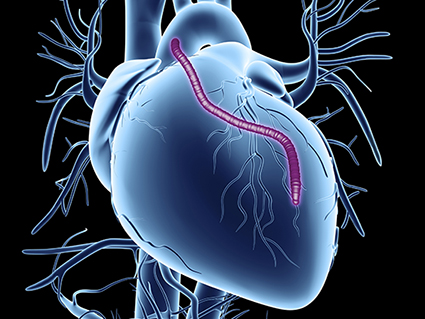 CABG is a commonly performed, lifesaving surgery for patients with heart attacks and severe disease of the heart’s blood vessels. Avoiding a surgery like CABG due to fears of COVID-19 has “drastic implications.”CABG is a commonly performed, lifesaving surgery for patients with heart attacks and severe disease of the heart’s blood vessels. Avoiding a surgery like CABG due to fears of COVID-19 has “drastic implications.”A new study published in the Journal of Thoracic and Cardiovascular Surgery: Open by University of Alabama at Birmingham researchers shows a decline in patients’ needing coronary artery bypass graft surgery during the COVID-19 pandemic.
CABG is a commonly performed, lifesaving surgery for patients with heart attacks and severe disease of the heart’s blood vessels. Avoiding a surgery like CABG due to fears of COVID-19 has “drastic implications.”CABG is a commonly performed, lifesaving surgery for patients with heart attacks and severe disease of the heart’s blood vessels. Avoiding a surgery like CABG due to fears of COVID-19 has “drastic implications.”A new study published in the Journal of Thoracic and Cardiovascular Surgery: Open by University of Alabama at Birmingham researchers shows a decline in patients’ needing coronary artery bypass graft surgery during the COVID-19 pandemic.
Researchers report there has been a decline of roughly 36 percent in the number of patients undergoing a CABG; but reassuringly, the risk of death and other poor outcomes remains identical among those who underwent surgery in 2020.
CABG is a commonly performed, lifesaving surgery for patients with heart attacks and severe disease of the heart’s blood vessels. Patients with heart attacks who are not operated upon in a timely manner can develop heart failure and can die. Nearly 350,000 CABG surgeries are done each year in the United States.
Vibhu Parcha, M.D., a clinical research fellow in the Division of Cardiovascular Disease, says this study was aimed at understanding the impact of the COVID-19 pandemic on lifesaving surgery volume and determining whether there was an impact on death or other outcomes among patients undergoing CABG during the pandemic, because of the modifications in health care delivery and limited resources.
Parcha and his team used bioinformatics resources from the UAB Center for Clinical and Translation Science to assess real-world data from multiple centers in the United States, for both CABG surgery volume and the risk of related surgery outcomes among patients undergoing CABG in the pandemic period, compared with those from the preceding year.
“We analyzed the TriNetX COVID-19 research network database, and we found that the number of patients undergoing CABG declined by approximately 36 percent in the pandemic, compared with those undergoing CABG in the same time period in 2019,” Parcha said. “In those who underwent CABG during the pandemic peak, the risk of death, developing stroke, developing severe lung failure, requiring a ventilator for breathing and developing kidney failure was similar to that in the previous year.”
Parcha added that less than 0.3 percent of patients undergoing CABG developed COVID-19 after the surgery, showing the robustness of infection-control measures in hospitals across the country to prevent the spread of COVID-19 among those seeking care.
All of these findings were replicated when the study population was limited to those undergoing CABG at UAB.
“CABG is a crucial, lifesaving surgery, and we have repeatedly seen patients with symptoms of heart attacks not coming to the hospital for their symptoms due to the fear of developing COVID-19,” said senior author Pankaj Arora, M.D., a physician-scientist in UAB’s Division of Cardiovascular Disease. “There were also concerns among the community regarding the lack of adequate access to resources for the care of patients undergoing surgery. Avoiding a lifesaving surgery like CABG due to these fears has drastic implications.”
 Pankaj Arora, M.D. (Photography: Andrea Mabry), James E. Davies, M.D. (Photography: Steve Wood) and Vibhu Parcha, M.D. (Photography: Lexi Coon)With the help of excellent resources from UAB Medicine’s Informatics Institute, led by James Cimino, M.D., Arora adds, he and his fellow researchers have been able to demonstrate that, while there was a substantial decline in patients’ coming in for CABG, there was no increased risk to patients for developing COVID-19 or having poor clinical outcomes after surgery.
Pankaj Arora, M.D. (Photography: Andrea Mabry), James E. Davies, M.D. (Photography: Steve Wood) and Vibhu Parcha, M.D. (Photography: Lexi Coon)With the help of excellent resources from UAB Medicine’s Informatics Institute, led by James Cimino, M.D., Arora adds, he and his fellow researchers have been able to demonstrate that, while there was a substantial decline in patients’ coming in for CABG, there was no increased risk to patients for developing COVID-19 or having poor clinical outcomes after surgery.
“These findings suggest that, if you think you have symptoms of a heart attack, you should not hesitate in coming to the emergency room or contacting your medical providers,” Arora said. “The risk of developing COVID-19 may be much lower than potentially fatal outcomes if you do not seek care for your symptoms.”
James E. Davies, M.D., a senior author on the manuscript and director of the UAB Division of Cardiothoracic Surgery and the UAB Cardiovascular Institute, says these data are very encouraging.
“We found that the results on the national level were also seen in the analyses restricted to UAB,” Davies said. “While this adds scientific rigor, it also verifies the success of UAB Medicine in being effective in providing topnotch quality of care for our patients with heart disease while also preventing the spread of COVID-19 within the hospital.”
The UAB Cardiovascular Institute is one of the largest of its kind in the Southeast, providing state-of-the-art facilities for the care of patients with high blood pressure, heart attacks, heart failure, heart valve problems, heart rhythm problems and stroke.